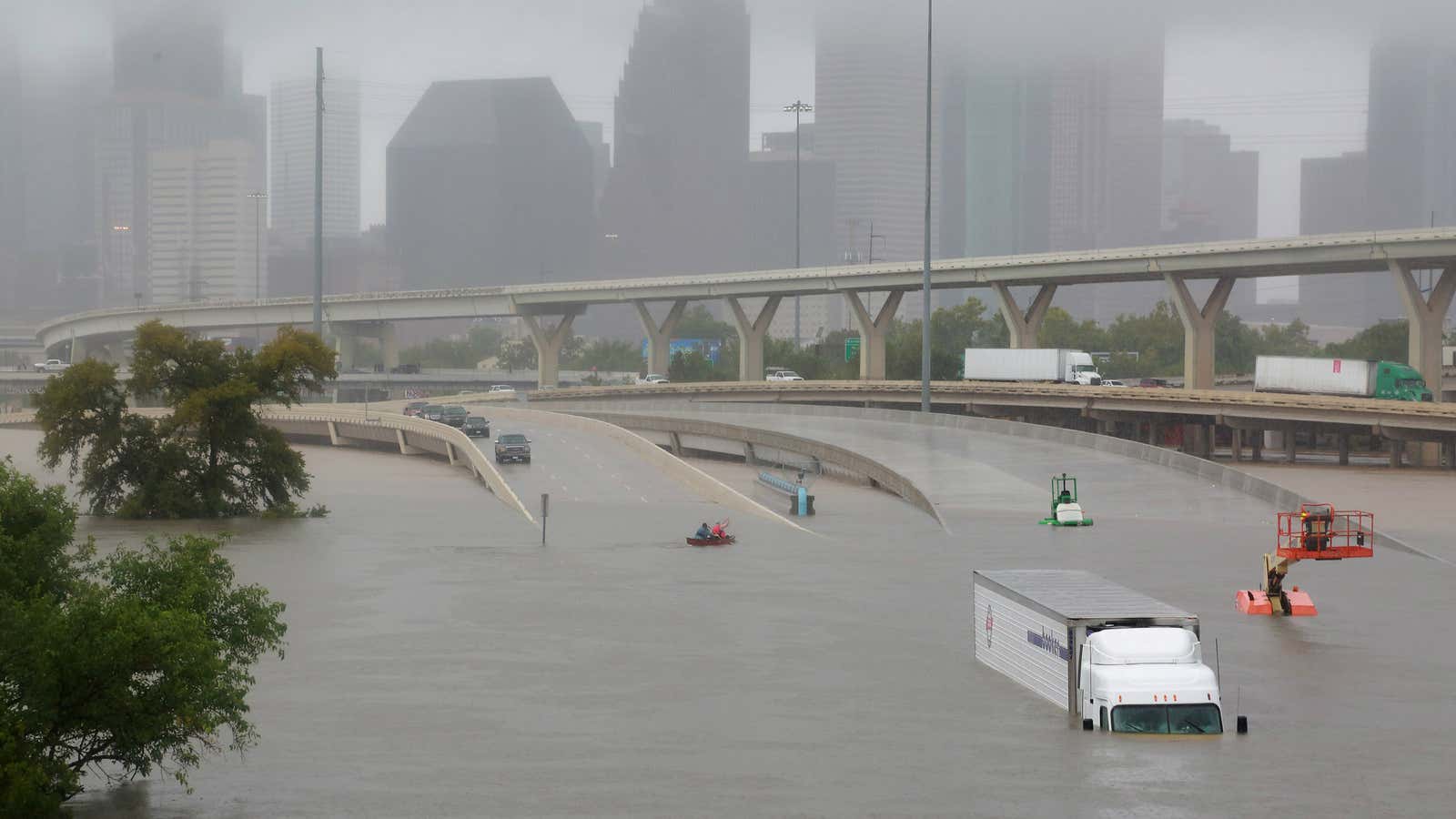For the second year running, business and political leaders think the world’s biggest threat is extreme weather, according to the latest Global Risks Report by the World Economic Forum (WEF) published today.
In recent years, economic risks such as market collapses, fiscal crises, and systemic financial failures, have dropped down the list of concerns, replaced with fears about the environment. WEF, which runs the annual conference in Davos for global elites, found that three of the five most likely global risks for 2018 were environmental—extreme weather, natural disasters, and failure to mitigate climate change. (The report is based on a survey of almost 1,000 experts in business, government, and civil society, mostly polled in September and October last year.)
Of the risks that could have the biggest impact to the world, after weapons of mass destruction, the next three are environmental.
Before 2010, environmental risks didn’t register in the top five concerns at all.
The world was struck—seemingly relentlessly—by hurricanes, floods, wildfires, and earthquakes in 2017. Around the time the WEF was conducting its survey, Hurricane Irma was ravaging the Caribbean and Florida, shortly after Hurricane Harvey had caused destructive floods in Texas, and both before Hurricane Maria wiped out power in Puerto Rico. What’s more, for the first time in years, Co2 emissions increased in 2017, putting the Paris climate accord’s goal of net-zero emissions by about 2050 even further out of reach.
So, it’s easy to see why the environment tops the list of risks. In 2017, the economic losses from natural and man-made disasters reached $306 billion, almost double the previous year’s cost, according to Swiss Re. The US was hit the hardest, and these figures don’t even capture the full extent of suffering from environmental disasters. By definition, richer countries book higher economic losses (more valuable infrastructure is destroyed) but parts of south and southeast Asia suffered catastrophic floods that led to thousands of deaths, while people in poorer parts of the world are displaced by global warming.
“We have been pushing our planet to the brink and the damage is becoming increasingly clear,” the WEF says in the report. “A trend towards nation-state unilateralism may make it more difficult to sustain the long-term, multilateral responses that are required to counter global warming and the degradation of the global environment.”
Aside from the environment, there are many other risks that business bosses and political leaders are worried about. More than 90% of survey respondents said they expect an increase in frictions between major global powers, while 80% said they also expect an increase in risks stemming from state-on-state military conflict and large-scale cyber attacks.
That’s plenty of material for the global elite to discuss over fondue in Davos next week.
